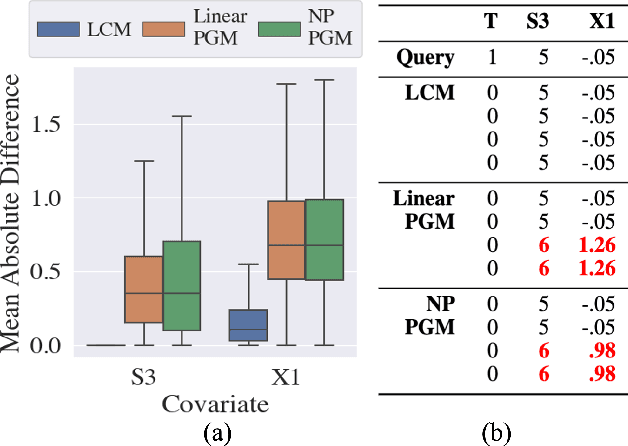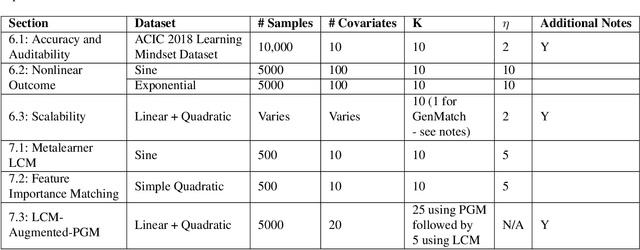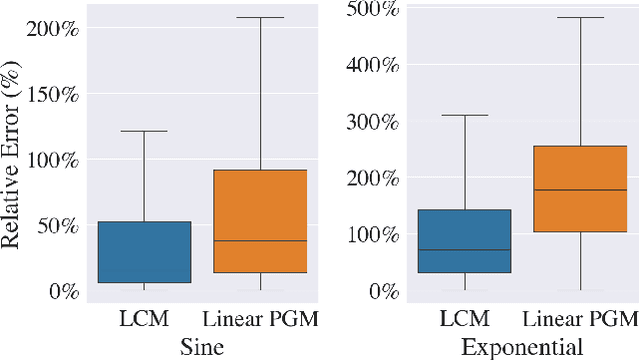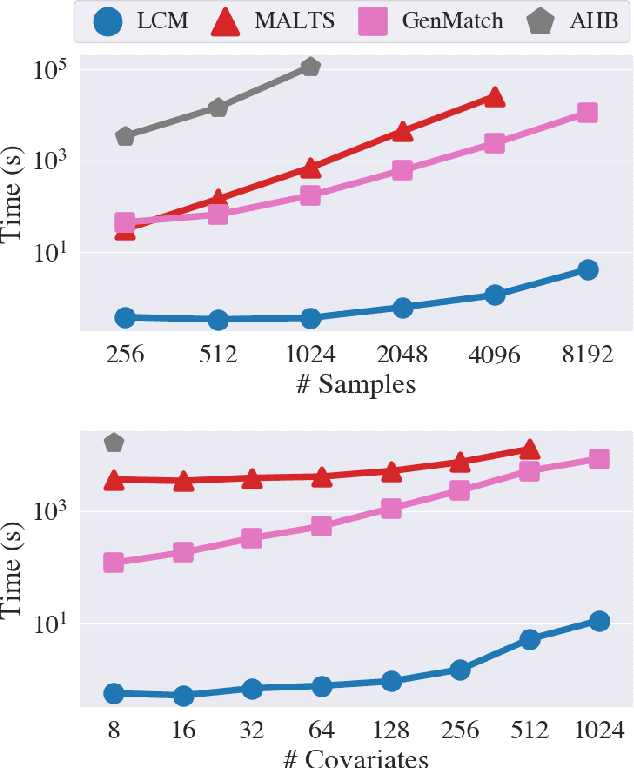Quinn Lanners
Data Fusion for Partial Identification of Causal Effects
May 30, 2025Abstract:Data fusion techniques integrate information from heterogeneous data sources to improve learning, generalization, and decision making across data sciences. In causal inference, these methods leverage rich observational data to improve causal effect estimation, while maintaining the trustworthiness of randomized controlled trials. Existing approaches often relax the strong no unobserved confounding assumption by instead assuming exchangeability of counterfactual outcomes across data sources. However, when both assumptions simultaneously fail - a common scenario in practice - current methods cannot identify or estimate causal effects. We address this limitation by proposing a novel partial identification framework that enables researchers to answer key questions such as: Is the causal effect positive or negative? and How severe must assumption violations be to overturn this conclusion? Our approach introduces interpretable sensitivity parameters that quantify assumption violations and derives corresponding causal effect bounds. We develop doubly robust estimators for these bounds and operationalize breakdown frontier analysis to understand how causal conclusions change as assumption violations increase. We apply our framework to the Project STAR study, which investigates the effect of classroom size on students' third-grade standardized test performance. Our analysis reveals that the Project STAR results are robust to simultaneous violations of key assumptions, both on average and across various subgroups of interest. This strengthens confidence in the study's conclusions despite potential unmeasured biases in the data.
Counterfactual Evaluation of Ads Ranking Models through Domain Adaptation
Sep 29, 2024Abstract:We propose a domain-adapted reward model that works alongside an Offline A/B testing system for evaluating ranking models. This approach effectively measures reward for ranking model changes in large-scale Ads recommender systems, where model-free methods like IPS are not feasible. Our experiments demonstrate that the proposed technique outperforms both the vanilla IPS method and approaches using non-generalized reward models.
Estimating Trustworthy and Safe Optimal Treatment Regimes
Oct 23, 2023



Abstract:Recent statistical and reinforcement learning methods have significantly advanced patient care strategies. However, these approaches face substantial challenges in high-stakes contexts, including missing data, inherent stochasticity, and the critical requirements for interpretability and patient safety. Our work operationalizes a safe and interpretable framework to identify optimal treatment regimes. This approach involves matching patients with similar medical and pharmacological characteristics, allowing us to construct an optimal policy via interpolation. We perform a comprehensive simulation study to demonstrate the framework's ability to identify optimal policies even in complex settings. Ultimately, we operationalize our approach to study regimes for treating seizures in critically ill patients. Our findings strongly support personalized treatment strategies based on a patient's medical history and pharmacological features. Notably, we identify that reducing medication doses for patients with mild and brief seizure episodes while adopting aggressive treatment for patients in intensive care unit experiencing intense seizures leads to more favorable outcomes.
From Feature Importance to Distance Metric: An Almost Exact Matching Approach for Causal Inference
Feb 23, 2023



Abstract:Our goal is to produce methods for observational causal inference that are auditable, easy to troubleshoot, yield accurate treatment effect estimates, and scalable to high-dimensional data. We describe an almost-exact matching approach that achieves these goals by (i) learning a distance metric via outcome modeling, (ii) creating matched groups using the distance metric, and (iii) using the matched groups to estimate treatment effects. Our proposed method uses variable importance measurements to construct a distance metric, making it a flexible method that can be adapted to various applications. Concentrating on the scalability of the problem in the number of potential confounders, we operationalize our approach with LASSO. We derive performance guarantees for settings where LASSO outcome modeling consistently identifies all confounders (importantly without requiring the linear model to be correctly specified). We also provide experimental results demonstrating the auditability of matches, as well as extensions to more general nonparametric outcome modeling.
 Add to Chrome
Add to Chrome Add to Firefox
Add to Firefox Add to Edge
Add to Edge